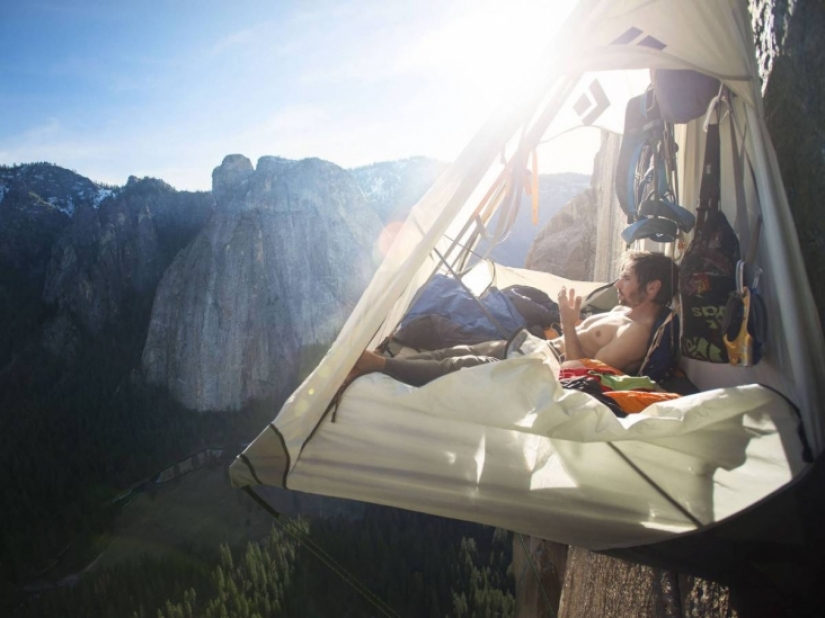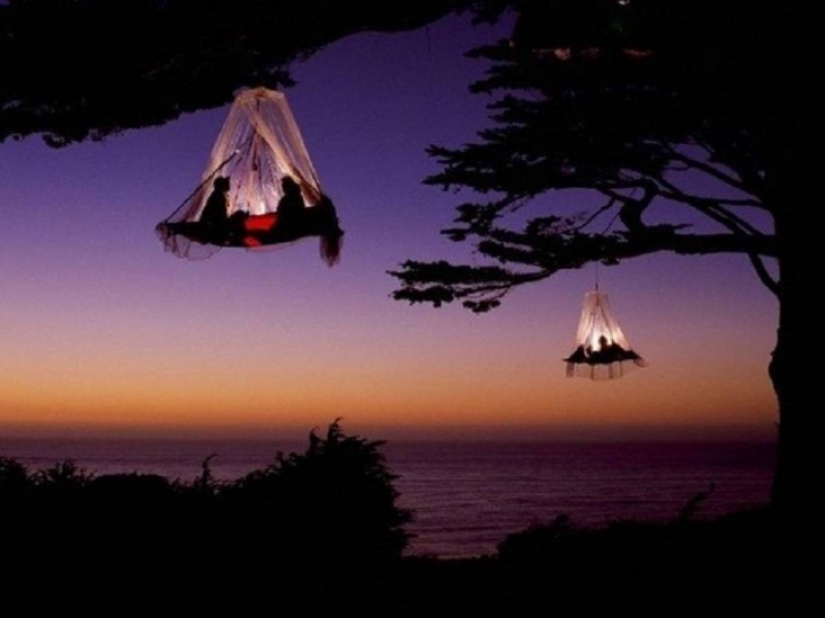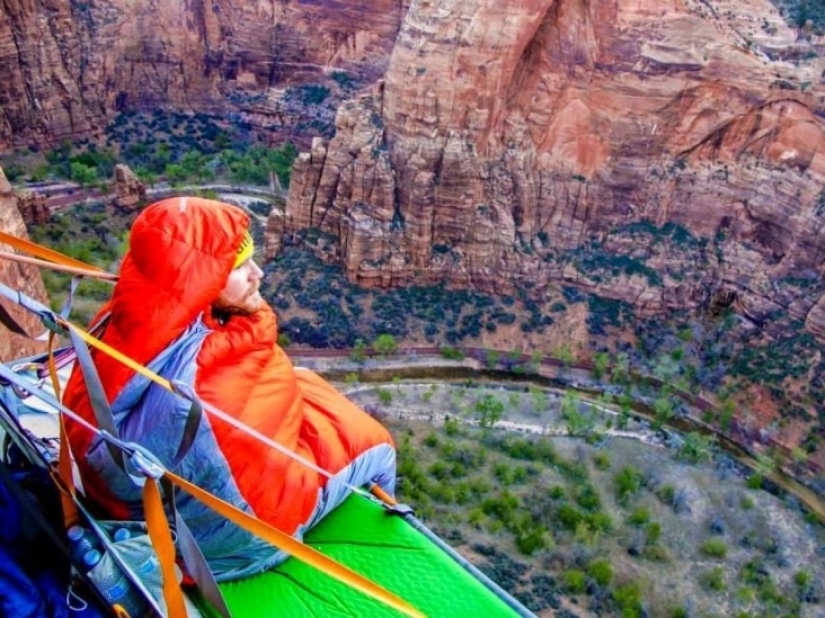Hold the night: how climbers sleep in the mountains
Could you sleep peacefully if I were hanging from a tree or to a rock? Of course I could if I was doing rock climbing. Fans of this form of recreation often have to resort to the installation of special tents called portaledge to recuperate after a long rise with a comfortable (as possible) sleep. But how do they do it?
Tommy Caldwell (Tommy Caldwell) and Kevin Jorgeson (Kevin Jorgeson) went down in history due to the fact that climbed to the top of the largest U.S. mountain monolith — California El Capitan. The ascent took 19 days, and was developed by climbers the route was called the Dawn Wall ("Dawn wall").

El Capitan — one of the main attractions of Yosemite national Park, located in California. The size and shape features made her a favorite for the climbers summit.

Some climbers prefer to hang the tent to the trees.

Zion national Park, Utah, USA.
Appalachian mountains, North Carolina, USA.
Sea cliff Gogarth, Wales, UK.
Mount Meru, The Himalayas, India.
Chamonix, France.
Baffin Island, Canada.
But in order to install this tent on a height of 128 metres in the mountains of Utah, it took no less 11 people and 24 hours.
Keywords: Height | Mountains | Night | Tent | Climbing | Backpacking | Extreme
